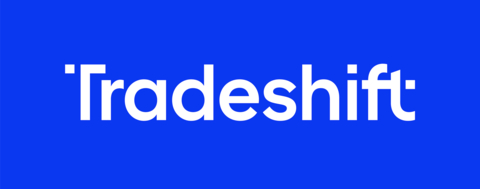
-
Six in ten finance and accounting professionals believe automation will lead to higher morale and more interesting work. Half say automation will lead to higher earning potential and reduced stress
-
Employees who had experienced the highest levels of automation were also the happiest and most optimistic about their career prospects
-
62% of respondents would be more likely to apply for a job with a company that had already invested in automation
-
40% believe a software program would make a more effective line manager than their current boss
Workers who have incorporated high levels of automation into their daily tasks are happier in their jobs, more optimistic about their future career prospects and more likely to recommend their role to someone about to enter the job market, according to new research from Tradeshift.
Tradeshift’s ‘Are Friends Electric?’ report polled attitudes to automation among 500 finance and accounting professionals, roles which are often cited as being at risk from disruption by technology. The research revealed that 71% of respondents believed automation would have a positive impact on their job satisfaction. And while a quarter of employees felt technology could one day eliminate their job role in its current form, a clear majority (63%) believed key aspects of what they do would always demand a human touch.
Marketing Technology News: Lackluster Chatbots Get Kicked to the Curb as Consumers Demand More from Digital-First Experiences
“We’re beginning to build a clear picture of the future of work, which will feature close collaboration between humans and machines, each doing what they do best. It is in the interests of every business to give employees the opportunity to prosper in that environment”
Above all, respondents saw automation as a way to eliminate the low-value, repetitive work they cited as the number one reason for unhappiness in their current role. By handing the bulk of this work to a machine, 6 in 10 workers saw an opportunity to do more interesting work and improve team morale. Half of the respondents also felt that automation would help them boost their earning potential while reducing their levels of stress at work.
The survey revealed significant differences in levels of automation adoption across the territories studied. The US had a clear lead, with almost three quarters (72%) of employees saying the level of automation in their department was already very high. This compares to 50% in the UK, 37% in Germany, and just 21% in France.
Interestingly, territories where automation is already highly embedded in the workplace also showed the highest levels of happiness among employees. In the US, 75% of respondents rated themselves as very happy in their job. In France, which had the lowest level of automation, 44% of respondents said they are very happy. In Germany, just 40% of respondents rated themselves as very happy in their current job.
Marketing Technology News: It’s Time to Stop Calling Privacy a Tech Problem: How Publishers Can Succeed in the Trust-Based…
“If you believe the doom-mongers, you’d think today’s workers are terrified that automation will steal their jobs, but our research shows the reality is very different,” said Mikkel Hippe Brun, co-founder and General Manager, Payment Automation, at Tradeshift. “Employees who have embraced automation in their day-to-day work have found that any residual fears around robots stealing their jobs quickly fade away. Not only are they more productive, but they’re also happier, less stressed and more optimistic about future career progression.”
Delving deeper, the research revealed:
- Workers from countries with advanced levels of automation adoption consistently scored the benefits of the technology more highly, indicating that employees “prefer automation in practice more than in theory”.
- 85% of respondents in the US said they would happily recommend their job to someone about to enter the workforce compared to 58% in Germany.
- 62% of total respondents said they would be more likely to apply for a job with a company if it had invested in automation, rising to 74% of respondents in the US
- 40% of respondents also believed a software program would be a more effective line manager than their current boss, believing technology to be better at checking work, spotting problems and even assigning tasks.
45% of the total respondents said they had seen investment in automation accelerate within their department over the past year, while more than half (52%) said they expected investment to accelerate over the next 12 months. Most employees felt comfortable with the pace of change, but under half (45%) rated their employer as very committed to training and upskilling employees to accommodate this change.
“We’re beginning to build a clear picture of the future of work, which will feature close collaboration between humans and machines, each doing what they do best. It is in the interests of every business to give employees the opportunity to prosper in that environment,” said Hippe-Brun. “The current war for talent will be won by organizations that invest in technology and training that empowers employees to become more strategic, more collaborative, and ultimately more visible.”
Marketing Technology News: It’s Time to Stop Calling Privacy a Tech Problem: How Publishers Can Succeed in the Trust-Based…











